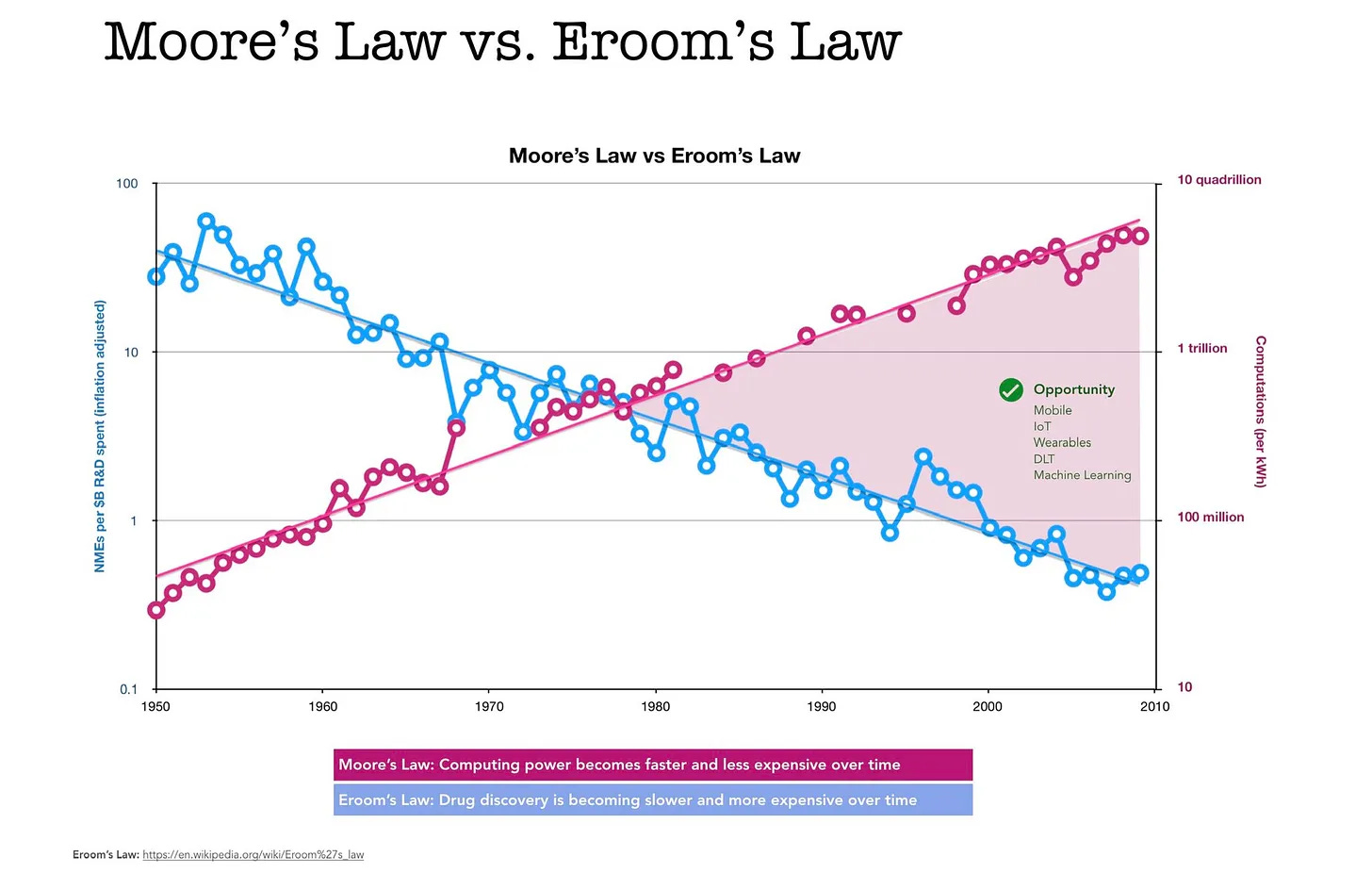Próspera | Experimental Governance
What if we could test new policies before we rolled them out to everyone?
I don't know about you but when I think about "innovation," I tend to get tunnel vision and only focus on technological innovation. Stuff like 3D printing or AI. Hopefully today's article will expand that idea for us all as we explore perhaps the most important innovation of all - one that is a precursor for both the pace of innovation and even the ability to innovate at all. Governance.
"Governance, rules, or institutions are the base layer of society. Businesses and human cooperation are downstream of the legal and governance base layer."
—Niklas Anzinger, Infinita Manifesto
As an American, I will naturally point to our country's birth as one of the greatest examples of innovation in governance. Fighting for their freedom from the rule of Great Britain in the 1770's, the early colonies declared that they would no longer be governed by a monarchy but rather by the people through a new form of governance - a democratic republic. One of the people, by the people and for the people. And while no one can argue our country has had its fair share of failures, that innovation in governance has created the greatest country in history.
But you don't have to look at America alone - Shenzhen, Dubai, Singapore and Hong Kong are all shining examples of the impact of better governance.
I want to unpack what it means to innovate on governance and, were we to treat it as we would technology, how would that shape the way we write and codify laws?
Welcome to The Glimpse
Join thousands of leaders from companies like Nike, Google, Uber, Coinbase, Twitter and Venmo as we learn how to build the future.
The Long-term Impact of Policy
While I believe politicians will continue to exist in some form even after governance is moved to the blockchain, there are some inherent flaws in the way our current representative form of government works. Primarily, in that those who write the laws are rarely in touch with the areas of life those laws affect. Of course, I realize that there are congressional committees, think tanks, and even the direct voice of the people which (supposedly) serve to provide our representatives with the information they need to write educated and thoughtful legislation. But it's no secret that a lot of legislation gets passed that's... out of touch.
That "out of touch" legislation then get added to the canon of 30,000+ statues that now must be enforced across 330,000,000+ Americans. As you might imagine, in a country with 50 different states with their own sets of laws, nearly 20,000 cities and over 330 million people, there will be unexpected, long-lasting repercussions. This isn't theoretical. This is very real.
Despite rapid improvements in technological innovation thanks to the increasing amount of compute available (Moore's law), innovation in non-technological sectors has stalled and, in some cases, become more difficult. Eroom's Law is the observation that drug discovery is becoming slower and more expensive despite the fact that technology continues to advance. When you look at a chart plotting the rate of drug discovery against the rate of computations, the visual is staggering.
In an ideal world, our law makers are fighting for the good of the people... for the good of the nation. So the obvious question becomes, "how do we ensure we're writing good policies?"
Put another way, "how do we innovate our governance?"
I love the way that Balaji frames our current system for law making by thinking about it from the perspective of someone in the future:
"Our entire antiquated process of adversarially writing high-stakes laws on paper at the last minute, deploying them in production to hundreds of millions of people without any testing, and then getting them interpreted in unpredictable ways by regulators and solicitors will be seen as a bizarre relic of an older time."
—Balaji S. Srinivasan
When you put it like that, it's pretty clear that there's a lot of room for innovation. In the same way that we might run clinical trials or long-term studies for a new drug, we need a better way of testing our legislation in the real-world before it rolls out all 330 million Americans at once.
A Staging Environment for Policy
In computer programming, there are three versions of a piece of software. There's the "production" version which is what everyone interacts with. It's live on the internet or in the app store ready for people to use it. Then there's the "development" version which is the one where you're writing new code. It isn't live to your users yet and only you and your team can see it. There's probably a lot of half-written code throwing dozens of errors every time you tap "run."
And in between those two versions is the "staging" version. The staging version is running the code you *think* is finished but probably isn't. There's bound to be a button that doesn't work, a typo in the headline and a bunch of other bugs that have to get ironed out before you push it live to your users. This "staging" environment is the testing grounds for your code where you can put it in front of real users, take notes, rapidly iterate and even roll back an idea entirely if something isn't as expected.
The next innovation in governance could be something like a staging environment for regulation. A way to test it in a microcosm and iron out the kinks instead of thoughtlessly shipping a buggy piece of legislation to all of your citizens at once. This is particularly useful for highly regulated industries like finance, insurance, healthcare, transportation and manufacturing.
It's obvious that proper legislation makes a tangible difference in an industry. Delaware's c-corp provides flexible corporate governance and attractive tax advantages. Wyoming allows DAOs (decentralized autonomous organizations) to operate in the state as limited liability corporations granting them the rights and protections as traditional business entities. The Catawba Digital Economic Zone in the Carolinas provides a safe and stable environment for technological experimentation thanks to the protections of U.S. treaty obligations.
These are just a few examples of advantageous, localized regulation. And as we study the impact of their unique forms of governance, we can reuse the best of it as needed on a national scale.
Startup Cities as Regulatory Experiments
In the last 4 or 5 years, there has been an explosion of "new cities." The reason I put that in quotes is that there are a few different categories these cities fall under, each with their own twist on the same fundamental idea: to create new forms of governance in the real world.
To use Niklas Anzinger's 1-sentence definition of a startup city...
"[A startup city is] a product with a full stack of a) laws & regulations, b) governance services, c) land & real estate."
—Niklas Anzinger, Introducing the New Cities & Network States Industry Landscape
A city like St. John's Bay, for example, is on the island of Roatan off the coast of Honduras. While it is technically subject to the government of Honduras, it falls within a "Zone for Employment and Economic Development" or ZEDE for short. The cities in these zones are often called "model cities" because the Honduran government provides them with "a high level of autonomy, with its own political system at a judicial, economic, and administrative level." Effectively, its a city-sized country within another country.
St. John's Bay is a city that was created by a startup called Próspera who's goal is to built cities all across the world in these special zones to "maximize generalized prosperity and wealth creation." You can think of St. John's Bay as Próspera's first "product." While it may seem odd to think of cities as products, it does give us a clearer picture of HOW Próspera is thinking about building their cities.
Great products are crafted based on a combination of quantitative data and qualitative feedback.
Great products try to solve a user's problem with innovative solutions not just brute force (eg. a car vs. a faster horse).
Great products try to avoid "feature bloat," simplifying or even removing existing features.
Great products iterate quickly and try not to stagnate or become comfortable with unsolved pain points.
Rather than political favors, aggressive lobbying and overly-expensive vendors, the principles of great product management, product strategy, and product development become the tools that Próspera will use to innovate at the very base layer of society.
In just the few years that Próspera has been around, they've started 3 different cities and over 100 companies have already begun to explore how their governance innovations can help them, in turn, innovate on their unique technologies.
"Companies are already using Próspera (e.g. Minicircle, Seshat Bank, The Circular Factory, Aerialoop) to reduce their legal fixed costs by 80% and time-to-market by 90%."
—Niklas Anzinger, Infinita Manifesto
Conclusion
These startup cities where new forms of governance are their most valuable export will continue to appear as though we're spinning up a new instance of our staging environment to test a new bit of code. I'm not naive enough to believe that politicians will embrace this idea wholeheartedly, but I'm not defeated enough to give up. Whether or not we partner with Próspera to use their cities as our testing grounds or we develop our own startup cities right here in America, it's an important step toward the innovation of governance.
After a law has been thoughtfully (< emphasis here) written, it should be rolled out to a subset of our citizens first rather than the entire nation. Better yet, rather than testing new policy, we can experiment with removing policy entirely and compare its impact to the rest of the nation. During these testing phases, it will be critical to talk with our "users" in an effort to better understand their needs. Civic researchers will have their hands full collecting and analyzing the data from these experiments.
Finally, we'll be able to test things like universal basic income (UBI) and blockchain-based voting in a real-world setting within America.
I'm not here with answers on how this should be structured. Perhaps the startup cities will be given the option to opt in to piloting certain legislation. Perhaps third-party research centers will conduct the polling and user interviews. Perhaps multiple startup cities will pilot the same legislation in different parts of the country to test for things like cultural, industrial, and geographic variables. Who knows, perhaps all of that will be one big experiment too.
One thing I do know is that this country was founded on the principle that its government would be made up of the people, by the people and for the people. I still believe it's the greatest country on earth, but I haven't felt like our government has been made up of the people, guided by the people or working for the people in a long time. We were the OGs of innovative forms of governance - that's why it gets me excited to think that we could innovate toward a more "user focused" form of policy making. Let's not lose that fighting spirit that believes it can be better.
That's the future that companies like Próspera are building.
That’s all for this one - I’ll catch ya next week.
—Jacob ✌️






